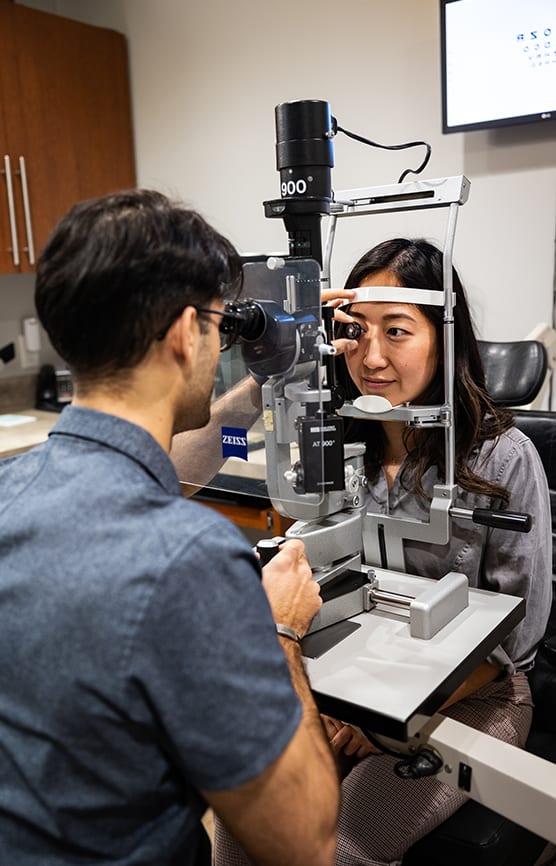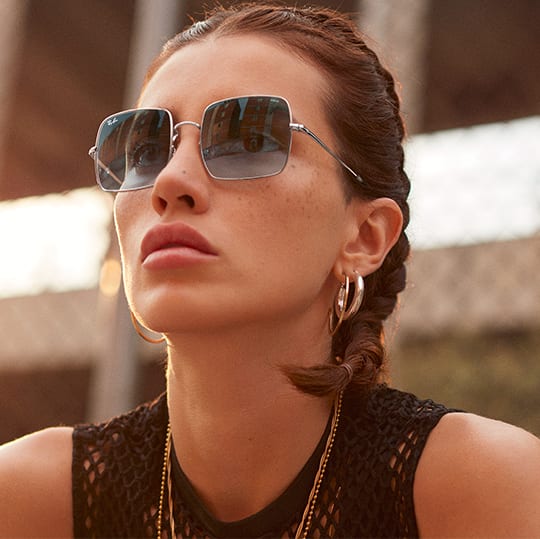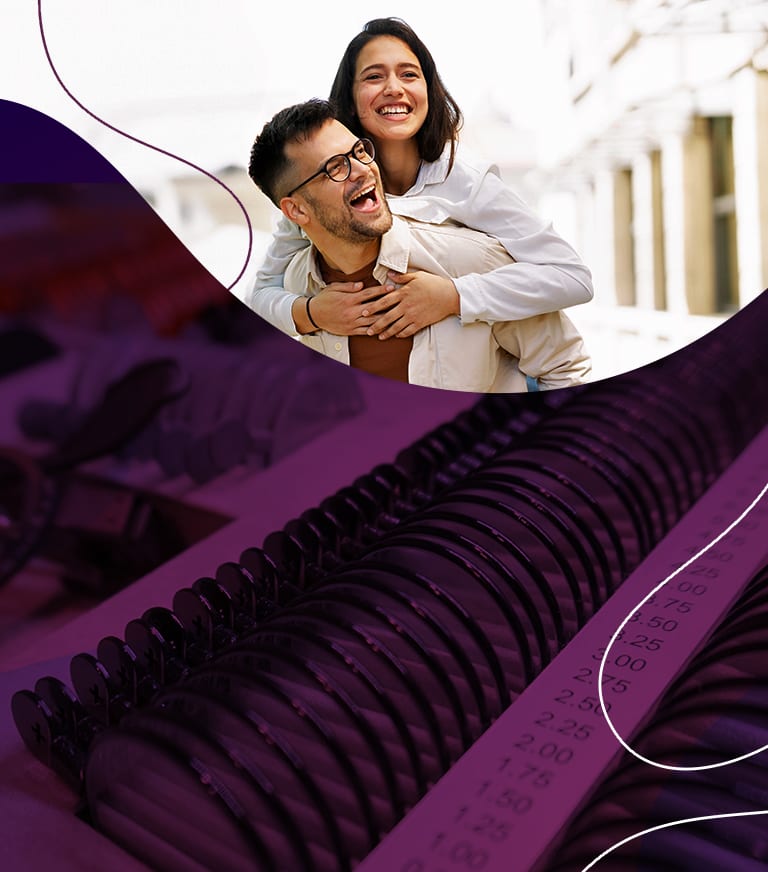
The Patient Experience Comes First
For over 20 years, Lake Country Optometry has been a staple for eye care in the community. Through eye health services like comprehensive eye exams, eye disease management, and contact lens exams, we’re always looking for new ways to help.
Our clinic’s journey is closely tied to our community’s growth, and through our committed team and investment in technology, we’ve put your needs first.
We strive to be your eye care destination in Lake Country—contact us to schedule an appointment today.
Combining Technology & Eye Care
Technology plays a key role in eye care. At Lake Country Optometry, we’re proud to provide modern technology for our patients. Our eye exams include optomap digital imaging and optical coherence tomography (OCT) so we can get the full picture of your eye health, including monitoring for early signs of glaucoma and other eye diseases. Learn how technology can transform your eye care.
Our Location
Visit Us
Find us on the corner of Main Street and Beaver Lake Road. We are accepting new patients and looking forward to welcoming you and your family.
Our Address
- 49-9522 Main Street
- Lake Country, BC V4V 2L9
Contact Information
- Phone: 250-766-4240
- Fax: 250-766-4267
- Email: [email protected]
Our Hours
- Monday: 9:00 AM – 5:00 PM
- Tuesday: 9:00 AM – 5:00 PM
- Wednesday: 8:00 AM – 7:00 PM
- Thursday: 9:00 AM – 5:00 PM
- Friday: 9:00 AM – 5:00 PM
- Saturday: 9:00 AM – 3:30 PM
- Sunday: Closed
Our Brands





Frequently Asked Questions
Can you make glasses with an external prescription?
Yes, we accept all prescriptions for glasses that have not expired. If your prescription is expired or you need to have your prescription assessed, we are more than happy to book you an appointment with one of our doctors for an exam.
How long does it take for glasses to arrive?
We make glasses in-house, and it takes around 3 hours for us to edge the lenses into your frame of choice. If glasses need to be ordered in, they typically take around 7 to 10 business days. Specialty orders may take longer to arrive. Our optical will do our best to give you an accurate time estimate and have your glasses made as soon as we can.
What is included in a full eye exam?
A full eye exam includes the following:
-
- A comprehensive ocular and medical history check-up to identify or assess your risk factors for certain eye diseases
-
- A vision check and prescription for glasses, if warranted
-
- Binocular vision testing to check how your eyes are functioning together
-
- A measurement of intraocular pressure (IOP) on all patients
-
- An optomap scan of your retina on all patients
-
- An OCT (optical coherence tomography) scan for adults
-
- A comprehensive eye health check in the office by the doctor
-
- If warranted, your eye doctor may recommend a visual field test to better assess peripheral vision in association with the use of medications with risk of harmful effects on vision
What is the cost of an eye exam?
Children (18 and under), seniors (65+), or those with certain medical conditions are eligible for medical services plan (MSP) coverage. MSP covers part of the eye exam and visual field tests (think of it like insurance), lowering the total cost of the exam you/your insurance is responsible for. We do not charge for children age 2 and under.
A patient is NOT eligible for MSP coverage if:
- You are from out of province
- Not registered with BC medical
- If you have had an eye exam elsewhere within the past year
| Service | Full Cost | If MSP Billable |
| Adult Eye Exam (19+) | $152 | $105 |
| Adult Contact Lens Wearer Eye Exam (19+) | $167 | $120 |
| Child Eye Exam (2-18) | $85 | $30 |
| Child Contact Lens Wearer Eye Exam (2-18) | $100 | $45 |
Do you do LASIK co-management?
Yes, we are more than happy to be a part of your LASIK journey. We are pleased to offer post-op follow-ups.
Can you direct bill my insurance?
Yes, we can directly bill most insurance companies. If your insurance company is not eligible for direct billing, we will provide you with a detailed receipt to submit for reimbursement.
What do I need to bring to my eye exam?
Please bring a list of medications, your glasses and contact lenses (or your last prescription), and any forms that need to be completed.
How long is an eye exam?
Full eye exams are usually between 30 to 45 minutes.
Do I have to be dilated during the exam?
Our office offers wide-field retinal imaging with the optomap machine on all patients who are physically able to. The optomap scan provides a 200-degree image of the retina (inside lining of the eye).
In certain cases, dilation is still recommended to better assess the retina and check for cataracts and other ocular diseases. If you are dilated, we encourage bringing a driver with you so you feel more safe on the way home.






